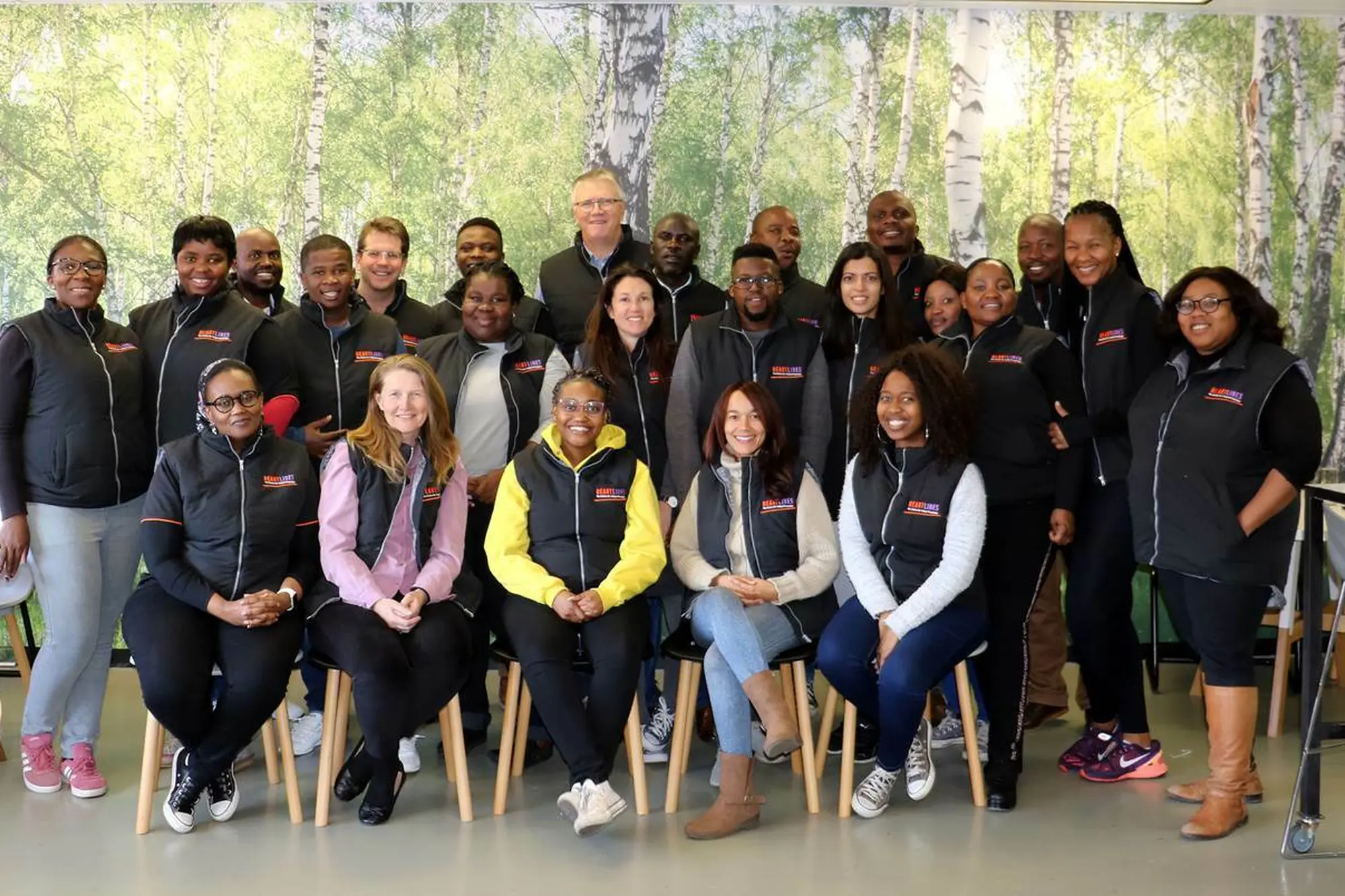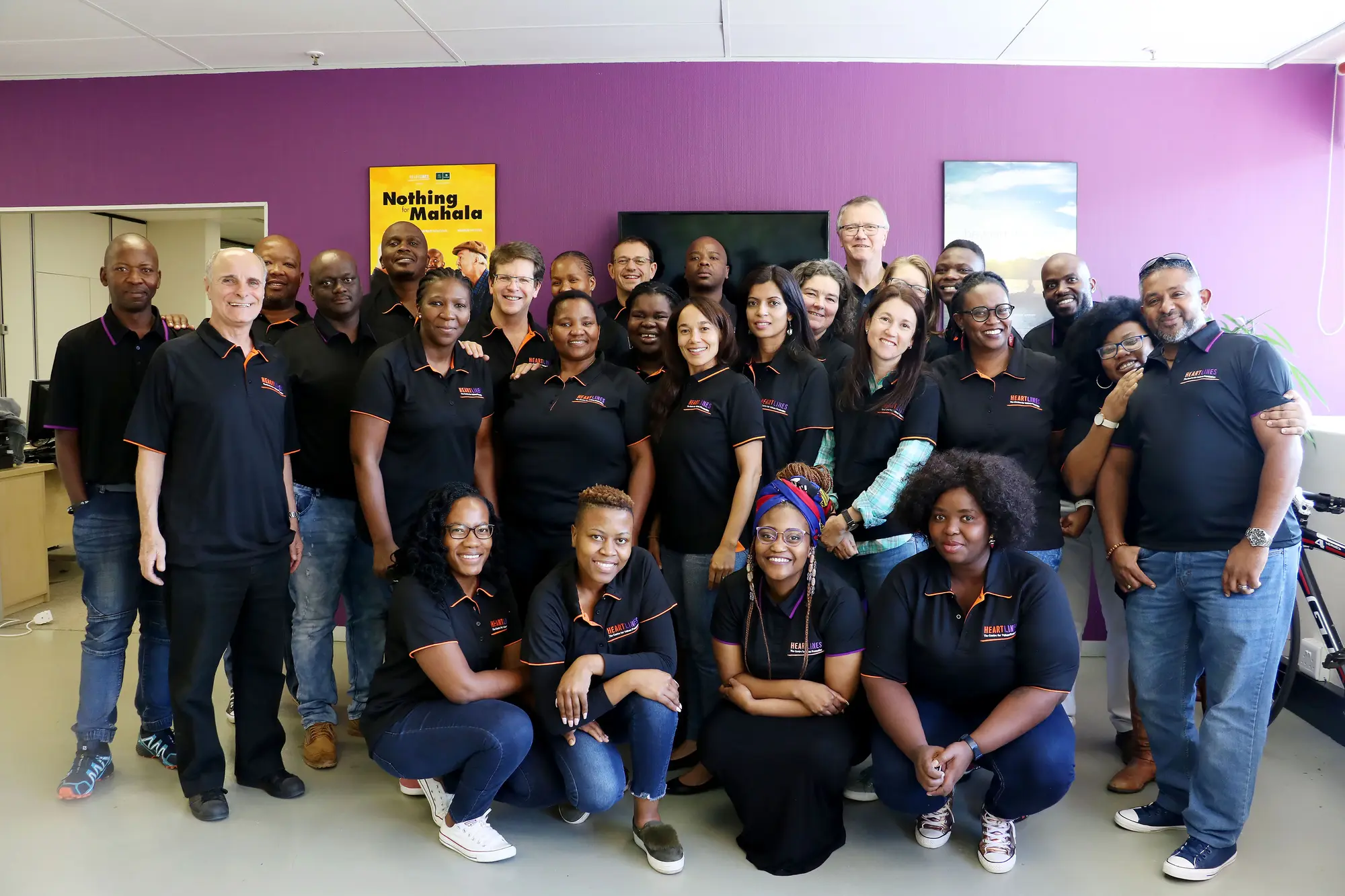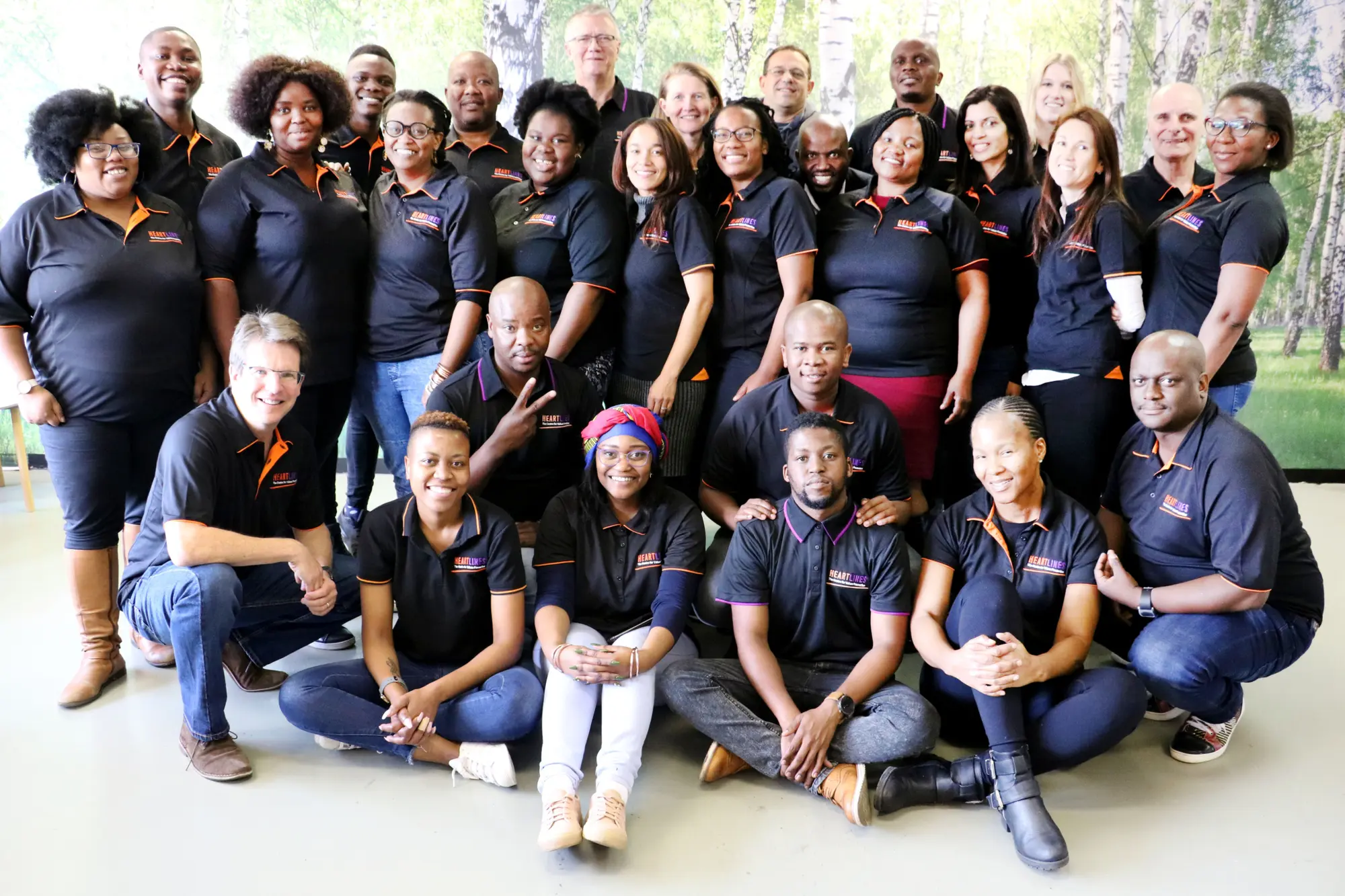Our story
The Heartlines story officially began in 2002 but the motivation behind it goes as far back as pre-democracy South Africa, when Dr Garth Japhet, a medical doctor working in Alexandra township in Johannesburg, realised that treating his patients’ symptoms alone would never really truly improve their health, wellbeing and quality of life.
So, with some fellow doctors, Garth founded Soul City in 1992. This award-winning multimedia edutainment platform is still reaching millions of people today with its accessible health and social justice messaging.
Heartlines, a natural successor to Soul City, was born in 2002. Still driven by his personal passion to transform lives through storytelling and entrenching positive values, Garth founded Heartlines as a non-profit Centre for Values Promotion.
I reviewed my own storyline and recognised that, beyond health, South Africa’s challenges related to the breakdown of our moral fabric.
South Africans from all walks of life have since warmly embraced the Heartlines vision, which is to move people from professed values to lived values – all in a bid to encourage our nation to address pressing societal issues by touching hearts, reinforcing strong morals and helping us to transform our behaviour for the better.
One of our early slogans sums up our approach perfectly: “We mobilise people to do what’s right in order to fix what’s wrong.”
How we contribute to a more cohesive society
In 2006, Heartlines came to the fore in emphatic, award-winning fashion. We produced eight values-based films that launched our first national campaign, “8 Weeks. 8 Values. 1 National Conversation.”
Each film focused on a specific value, and accompanying resources encouraged people to take the conversation on that value further in a small-group setting, such as a classroom or faith-based group. These films went on to win numerous awards, including from the Durban International Film Festival and the Banff World Television Awards.
This was to become a hallmark of the Heartlines brand – using relatable, true-to-life drama played out on film as a conduit to kick-start and engage in values-based conversations.
In 2009, we launched the campaign “6 Weeks of Values in Action”, which further entrenched our messaging on a local and global scale. The flagship of this campaign was the television mini-series Hopeville, which was later made into a feature-length film. Both went on to win many awards, including a Rose d’Or for best drama and miniseries in Lucerne, Switzerland, two South African Film and Television Awards and an International Emmy Award nomination ahead of the 2010 awards ceremony in New York City.
The Hopeville feature film also excelled on the continent by being named best film in the television and video film category at the Fespaco FIlm Festival in Burkina Faso, with lead actor Themba Ndaba winning the best actor award at the African Movie Academy Awards in Nigeria.
“Hopeville is a beautiful story of one man who is determined to restore the trust of his son, no matter the consequences … An inspiring movie that helps people understand that with positive action and determination, one can achieve anything.” – Bulelwa Dayimani, Channel24
In 2013 we released another award-winning feature film, Nothing for Mahala, spearheading a national Values & Money campaign to provoke conversations around our relationship with money and how it ties in with our personal values.
Our What’s Your Story? project was launched in 2016 to spark conversations around values and race, embracing difference and nurturing understanding. The supporting film of this project is the drama feature film Beyond the River.
All of our work, including our Fathers Matter project, is underpinned by a strong research component. Heartlines has a dedicated in-house research team to probe beneath the surface and deliver qualitative research that adds substance to the conversations around pressing issues that South Africans face today, while motivating for positive social change.
If you're interested in finding out more about the Heartlines journey, you can browse through our timeline.


